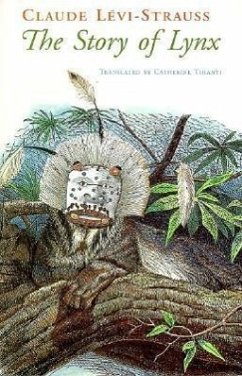In this wide-ranging work, the master of structural anthropology considers the many variations in a story that occurs in both North and South America, but especially among the Salish-speaking peoples of the Northwest Coast. He also shows how centuries of contract with Europeans have altered the tales. Levi-Strauss focuses on the opposition between Wild Cat and Coyote to explore the meaning and uses of gemellarity, or twinness, in Native American culture. The concept of dual organization that these tales exemplify is one of non-equivalence: everything has an opposite or other, with which it coexists in unstable tension. In contrast, Levi-Strauss argues, European notions of twinness - as in the myth of Castor and Pollux - stress the essential sameness of the twins. This fundamental cultural difference lay behind the fatal clash of European and Native American peoples. The Story of Lynx addresses and clarifies all the major issues that have occupied Levi-Strauss for decades, and is the only one of his books in which he explicitly connects history and structuralism. The result is a work that will appeal to those interested in American Indian mythology. It will be required reading for anyone who wants to understand the thought of one of the most important and influential minds of the twentieth century.
Bitte wählen Sie Ihr Anliegen aus.
Rechnungen
Retourenschein anfordern
Bestellstatus
Storno








